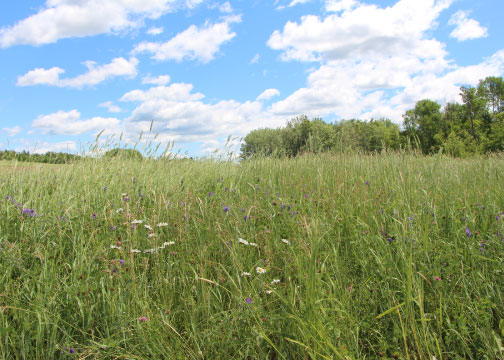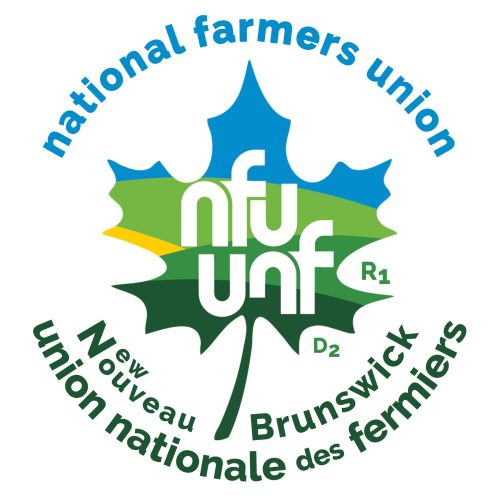To: Minister Margaret Johnson
CC: MLA’s
On behalf of: Agricultural Alliance of New Brunswick, Common Front for Social Justice, Conservation Council of NB, Dairy Farmers of New Brunswick, Green Light NB Enviro Club Feu Vert, Imaginons la Péninsule acadienne autrement, National Farmers Union – New-Brunswick, RAVEN – Rural Action and Voice for the Environment, Solidarité Fredericton and Sustainable Energy Group – Carleton Chapter
OPEN LETTER – Agricultural Climate Solutions in New Brunswick
The New Brunswick government has demonstrated its intention to take action to fight climate change. The agriculture sector can play a significant role in meeting our provincial target of reducing our emissions 46% below 2005 levels by 2030.
Farmers for Climate Solutions (FCS) is a national coalition of farmer-led and farmer supporting organizations who believe that agriculture must be part of the solution to climate change. The recent FCS report Rooted in Climate Action explores how the 2023-2028 Sustainable Canadian Agricultural Partnership (SCAP) can be leveraged to empower farmers to continue to be environmental stewards by expanding access to programs and removing barriers to Beneficial Management Practice (BMP).
The National Farmers Union – New Brunswick drew on this report and submitted a brief advancing key program and policy recommendations that take into account NB’s agricultural context and needs. These recommendations are cost-effective ways to rapidly reduce emissions and chart a course for a climate-resilient agricultural sector that prioritizes farmer livelihoods and food security for all Canadians. While acting on climate, the recommendations also achieve other co-benefits of importance to the New Brunswick agricultural sector, including increased economic and environmental resilience of New Brunswick farms.
Here are two recommendations emanating from this brief that we, the signatories, would like to see implemented in the 2023-2028 SCAP bilateral agreement.
Recommendations
BUILDING SECTOR CAPACITY AND GROWTH : DESIGN OR ADJUST FUNDING LEVELS AND ADMINISTRATIVE REQUIREMENTS TO ENCOURAGE MAXIMUM PARTICIPATION.
– Fully fund programs that primarily aim to provide environmental benefits, such as the establishment of shelterbelts, pollinator zones, buffers or hedgerows, and riparian habitat. Farmers should not be fully responsible for bearing the costs of implementing BMPs that increase biodiversity, soil health or have other long term non-financial benefits.
– Introduce an advance payment cost-share for equity-deserving farmers, so lack of up-front capital is not a barrier to participation. Young farmers, women farmers, farmers with disabilities, Black farmers, Indigenous farmers and food providers, farmers of colour, small-scale farmers, 2SLGBTQ+ farmers, and new Canadian farmers often experience additional and unique barriers to enter and succeed in our sector. Also decolonize the process, have support or mentors for this program available using past participants or others from those unique backgrounds, who can fully understand what these farmers are going through and assist.
– Strengthen and support all sources of agricultural information, including farmer-to-farmer information sharing networks, independent agrologists and Certified Crop Advisors, farm organizations, and agricultural colleges and universities. The creation and expansion of farmer mentorship programs and farmer-led research initiatives should be a priority.
– Introduce a new Environmental Advisor program. Administrative requirements prevent many farmers from participating in cost-share programs. Providing advisory services to farmers for the application process and reporting requirements would help to make the programs more accessible and increase uptake.
– Promote the different programs for agriculture. New Brunswick offers a large number of agricultural programs, but many farmers are not aware of their existence. Communications must be thorough and use multi pronged approaches.
IMPROVE PUBLIC TRUST AND MEET EVOLVING CHALLENGES OF THE INTERCONNECTED DOMESTIC AND GLOBAL MARKETPLACE.
– Build public trust and awareness in the local food system by promoting environmentally friendly farming practices that a growing proportion of consumers are demanding.
– Give access to a bonus payment to producers adopting a suite of climate-focused BMPs. Helping farmers adopt and maintain these practices will improve public perception of the agricultural sector.
We know that the bilateral negotiations are well underway and that one of the focus areas guiding New Brunswick program design is “Climate Change and Environment”. The practices mentioned in the NFU-NB’s brief achieve considerable co-benefits, such as improved biodiversity and soil health, improved water holding capacity, and preventing soil erosion. We ask that these practices be implemented in the 2023-2028 Sustainable Canadian Agricultural Partnership (SCAP). By implementing climate-smart solutions that further reduce GHG emissions, New Brunswick’s agriculture sector will protect the land, water, and air that it depends on for long-term sustainability. We need our government to step in to support these efforts and to support farmers who need resources to implement such practices.
Signatories
Christian Michaud, President – Agricultural Alliance of New Brunswick
Janelle LeBlanc, Provincial Coordinator – Common Front for Social Justice
Louise Comeau, Director Climate Change Solutions and Co-interim Executive Director – Conservation Council of NB
Wietze Dykstra, Chair – Dairy Farmers of New Brunswick
Nicole McLaughlin, President – Green Light NB Enviro Club Feu Vert
Christine Lemay, President – Imaginons la Péninsule acadienne autrement
Eva Rehak, President – National Farmers Union – New-Brunswick
Susan O’Donnell, Researcher – RAVEN – Rural Action and Voice for the Environment
Data Brainanta, Dirk Groenenberg and Tracy Glynn, Organizers – Solidarité Fredericton
Sam Arnold, Coordinator – Sustainable Energy Group – Carleton Chapter
OPEN LETTER – Agricultural Climate Solutions in New Brunswick





